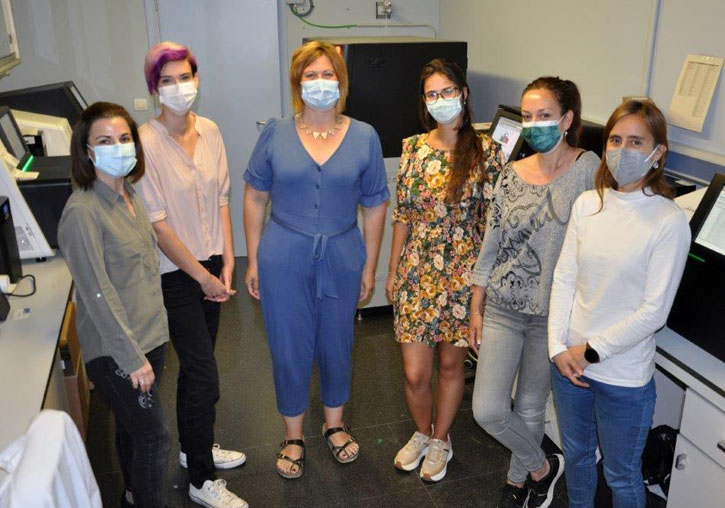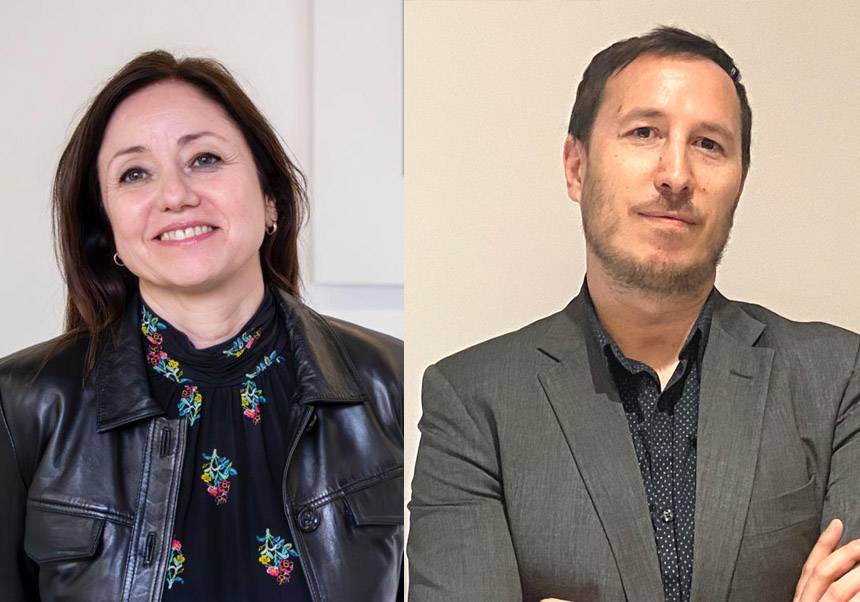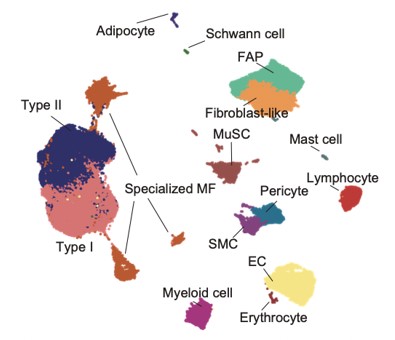Bioclean will develop cleaning products for the food industry and clinical practice based on bacteriophages.
- Scientific Culture and Innovation Unit
- October 23rd, 2021

The Bioclean project has obtained 715,000 euros from the Valencian Innovation Agency (AVI) to develop a biotechnological cleaning system against the main pathogens present in clinical practices and the food industry. The proposal has been developed by research staff from the Institute of Molecular Science of the University of Valencia (ICMOL); the Foundation for the Promotion of Health and Biomedical Research of the Valencian Community (Fisabio), dependent on the Regional Ministry of Universal Health and Public Health; Cleanity S.L.; IATA-CSIC; AINIA and Lumensia Sensors.
In recent years, resistance of pathogenic bacteria to antibiotics and biocides has increased, making their control and elimination a problem. According to the European Medicines Agency, 25,000 deaths are caused annually by multi-resistant bacteria. In this context, the food industry needs a method to control pathogens that may contaminate its products during the food production chain. Some of the most frequent food-borne diseases are those caused by Escherichia coli, Salmonella enterica or Listeria monocytogenes.
Regarding hospital infections, Llúcia Martínez Priego, head of Fisabio's sequencing service, comments that "they are one of the most serious health problems of this century, since, according to the WHO, an average of 8.7% of patients in a hospital present them; the early detection of these organisms in hospital surfaces and their elimination is one of the great challenges of global health".
To tackle these problems, the Bioclean project has two main objectives. One is to create a biosensor system using metagenomic techniques to predict and identify the source of specific contaminations, i.e. to know the bacteria causing the infection in order to produce a product that acts specifically against them. The other objective is to develop a range of products for microbiological cleaning and disinfection of pathogens.
Fisabio's Sequencing and Bioinformatics Service will participate in the development of biosensors with the implementation of a highly specific detection kit by studying the genomes of pathogenic organisms in order to identify differential genetic elements.
"To this end, genomes sequenced in the past whose data are in public databases will be compared and updated by sequencing positive controls of these genomes isolated from hospital and agri-food surfaces. In this way, the results will be adjusted to detection needs and their metabolic characteristics of resistance and virulence will be known in order to define an appropriate disinfection method," explains Martínez Priego.
With regard to the development of cleaning and disinfection products, the project is investigating the use of endolysins (enzymes produced by bacteriophage viruses) for the neutralisation of pathogenic bacteria both in the clinical setting and in the food industry. Bacteriophages are a type of virus that is characterised by exclusively infecting bacteria. The challenge of this task will be to study their efficacy against the organisms under study.
Therefore, finding a surface cleaning system based on endolysins will provide a feasible and toxicity-free alternative to the use of biocides during cleaning and disinfection processes in the food industry and clinical settings. This is a growing need to ensure the quality of life of both present and future societies.
The endolysins have very high specificities, therefore, for the cleaning and disinfection products developed to be effective, it will be necessary to combine these disinfection products with rapid, in situ detection systems of the class of pathogens that are producing the bacterial contamination. In this respect, the project aims to analyse and investigate sensors based on photonic technology. These have a high sensitivity and specificity against the target pathogens due to the use of biological probes specially developed against each of these pathogenic elements.
Funding from the Valencian Agency of Innovation
The BIOCLEAN project (Research and development of an integral biotechnological system for the cleaning and disinfection of pathogens with applications in food safety and the clinical field) is promoted by a consortium between Fisabio, Cleanity S.L., IATA-CSIC, AINIA, ICMOL-UV and Lumensia Sensors. The amount of the grant obtained in the AVI's strategic cooperation project modality is 715,000 euros, of which Fisabio will receive 149,927.90 euros.
File in: Investigació a la UV , Finançament recerca , Producció científica , Internacionalització recerca , Difusió i comunicació científica
















